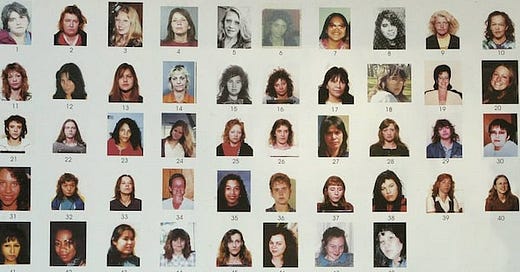Canada: Valentine's Day March against violence
The old case of a woman's murderer takes on new relevance.
Since 1992, indigenous people in the city of Vancouver in British Columbia have been organizing a memorial march on Valentine's Day for the murdered and missing indigenous women in Canada. Among them, victims of serial killer Robert Pickton. Now the police want to dispose of evidence in unsolved cases. So there will be many marching in Vancouver today.
According to a cellmate, Robert Pickton "boasted" that he had murdered 50 women. Pickton was found guilty in 2007 of second-degree murder and sentenced to life in prison with no chance of parole for 25 years in the deaths of six women. However, the DNA of 34 other women had been found on his pig farm in Port Coquitlam, about 25 kilometers east of Vancouver. In 2010, after the Supreme Court of Canada upheld his sentence, 20 further first-degree murder charges against Pickton were stayed because he was already serving the maximum sentence. The decision noted that Pickton’s statements to police implied accomplices.
Families of victims and human rights organizations accuse the police and judiciary of failing. Pickton was released after an initial arrest and then committed further murders. Evidence had disappeared - which led to a commission of inquiry and even brought some UN bodies onto the scene. In December 2023, the police announced their intention to dispose of around 14,000 pieces of evidence from the case against Pickton. A police spokesperson stated the process is required by law with the intended purpose of returning property "to the rightful owners, where applicable, or for the disposal of items not claimed." Any disposal of property, which will be decided by the courts, would not affect future prosecution, the statement added.
In an open letter to the British Columbia government, however, more than 40 organizations, academics and Indigenous groups from across Canada are calling for a moratorium on dispersing or destroying the Pickton evidence. They consider preserving them necessary in order to be used to convict other people or solve some of the dozens of unsolved cases. "Advances in DNA analysis are growing every single day. You can’t say that there’s no evidentiary value,” said Sasha Reid, who runs a database of missing people and unsolved murders in Canada, at a press conference. Disposal of the exhibits will quash any remaining hope of relatives that the death of their loved ones could still be solved. A petition aims to prevent this.
Explosive: Robert Pickton’s sentence dates from the day of his arrest on Februray 22, 2002, which means he can apply for day parole and unescorted absences on February 22, 2024 - eight days from now. And in three years' time, on February 22, 2027, he can even apply for full parole. The minimum waiting period of 25 years will then be over. However, he will not automatically receive parole.
This text was first published in German on my website here.



